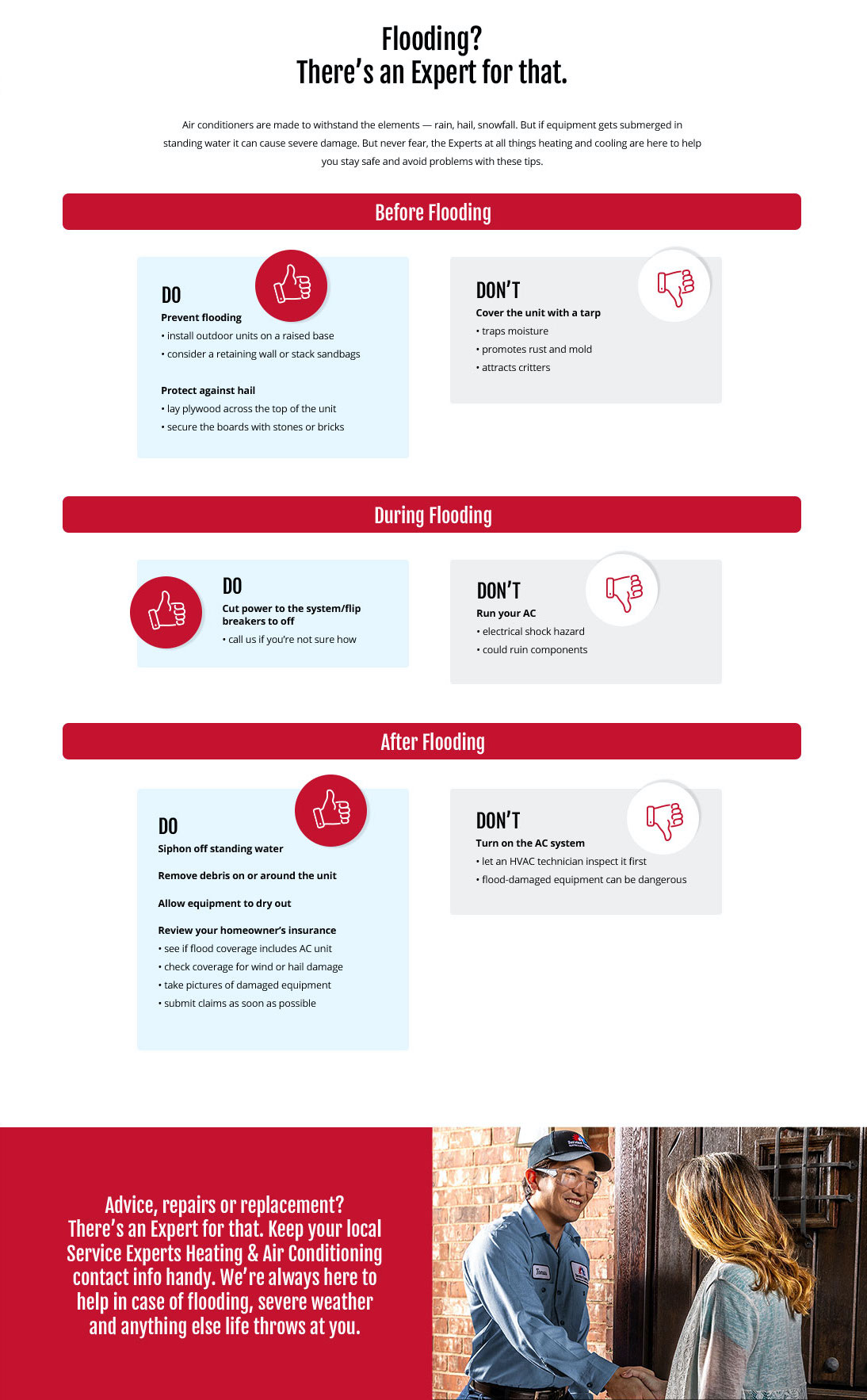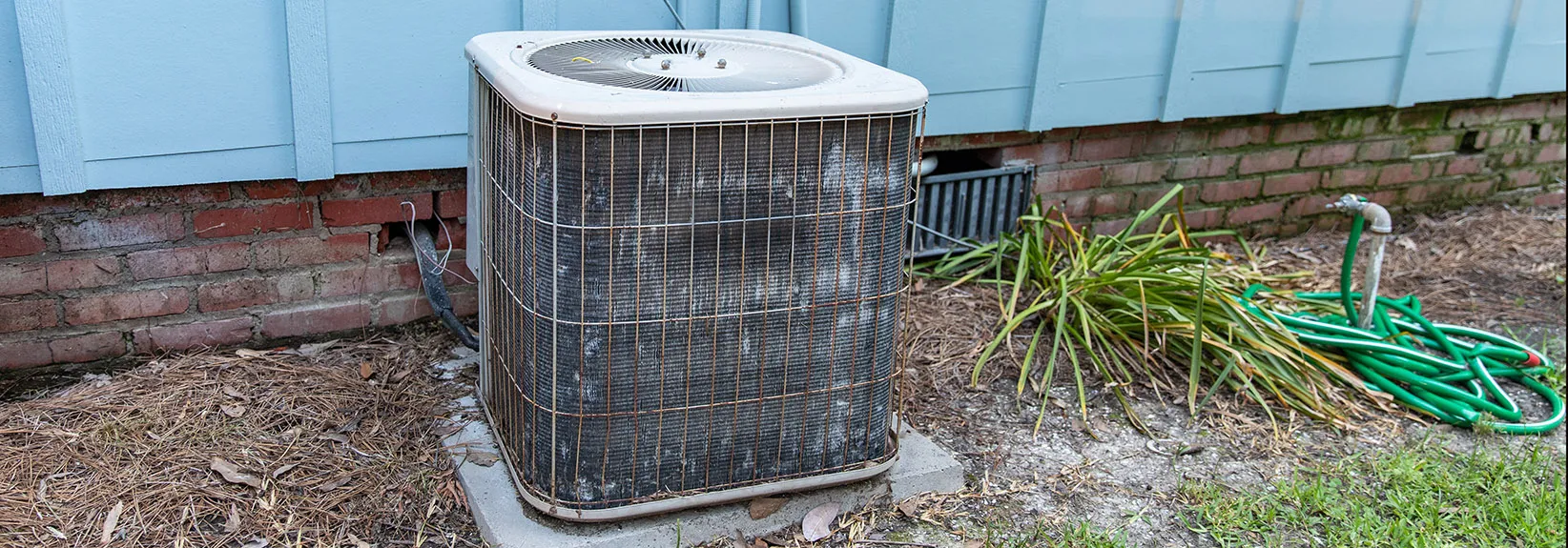What To Do If Your Air Conditioning System Experiences Flooding or Hail Damage
While your air conditioning unit is created to withstand all sorts of conditions, including heavy showers and storm damage, sometimes you need to call your AC maintenance technician to inspect possible damage. If your air conditioner sits in standing water, due to a torrential downpour or other unexpected issues, it can cause significant damage to the moving parts and electrical sections. The water usually has to reach about 12-15 inches in depth to affect your air conditioning system, but if there has been any flooding period, call Enercare Accent for an AC inspection immediately.
If intense rainfall or flooding caused your air conditioner to sit in standing water, there are a couple of things we suggest doing to avoid further damage or dangerous situations:
- Turn off all the electrical switches for your air conditioning system. If you are not comfortable doing this, you can call your air conditioning repair technician to help guide you through the process.
- Allow your air conditioner to dry out. Remove any standing water if possible and safely clear any debris from the surrounding area.
- Do not turn on your air conditioning system until a professional air conditioner inspection has been done. Call Enercare Accent and ensure your equipment will operate safely and effectively with a full air conditioner safety inspection.

CAUTION: Do not cover your outdoor heating and cooling systems with a tarp. This could actually cause more damage, including not allowing the air conditioner to air out entirely and remove moisture, potentially causing rust or other damage.
In addition to downpours, spring escorts in hail storms, as well. Annually thousands of commercial and residential air conditioning systems are harmed by hail. While you can usually see obvious damage from the outside, you may not realize that the damage inside the air conditioner may be causing restricted air flow, obstructing the performance of the system. Sometimes you can fix the air conditioner more easily, by combing the fins or replacing the coil, but an insurance company’s claim breakdown showed that around 10% of air conditioning units damaged by hail had to be entirely replaced.
Strong winds tend to accompany storms and while your air conditioner probably won’t get wind damage, other objects picked up by the wind, like bushes, grills, or unattached enclosures, can be thrown, damaging your system.
For a full air conditioning inspection and safety check, call Enercare Accent today and we’ll make sure your air conditioning unit is running safely and efficiently. Help keep your home safe during storm season and make sure to follow these guidelines if your city is under a serious storm warning.


